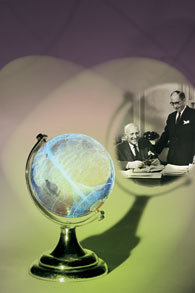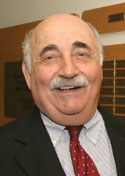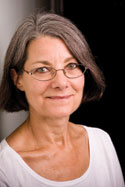by Jeff Roberts
McGill neuroscientists span political chasms

When Herbert Jasper met with a group of scientists in Moscow in 1958 to discuss the then fledgling discipline of brain research, the prominent McGill neuroscientist had a definite agenda—to reclaim science for the scientists. During the Cold War, science was but another arena for the opposing camps to demonstrate their ideological virility, whether by hurling Sputniks and Explorers into space or co-opting the neurosciences for psychological warfare.
Jasper and his colleagues in Moscow had an alternate vision for the world, one that would allow researchers from every country to share ideas and discoveries about the brain. What emerged two years later was the International Brain Research Organization (IBRO). Incorporated in Canada by an act of Parliament, the Paris-based IBRO is affiliated with UNESCO. Jasper served as its first executive secretary.
Nearly five decades later, another McGill neuroscientist, Dr. Albert Aguayo, is president of IBRO. He says the need for science to bridge the gaps that divide the world remains as important as ever.

“As we face new political schisms in the world, this organization is serving to act as a bridge between polarized regions,” he says, citing a recent IBRO effort that increased formal contact between members in Canada, Europe and the Middle East.
IBRO works with 50,000 neuroscientists from more than 100 countries to foster scientific co-operation and education around the world. It attracts heavyweight talent as well. Aguayo, affiliated with the Centre for Research in Neuroscience at McGill University and recipient of Canada’s prestigious Killam Prize for Health Sciences, is renowned for finding the first evidence that nerve cells can regrow after being injured. He insists IBRO is not another First World organization lending expertise to the poor cousins of the developing world. The relationship is reciprocal, and he can list a number of advancements that began in countries not normally so well known internationally for sophisticated science. Chile, for instance, has been at the forefront of research in membrane biophysics despite a shortage of resources.
“Anything approached from a plane of superiority really misses the point,” says Aguayo. IBRO has furthered brain research that has yielded health and commercial benefits for numerous countries, and led education initiatives such as African workshops about treatment for parasite-induced epilepsy.

IBRO has also boosted global research training through the operation of 20 schools, where instructors bring together clinical neurology with scientific study. McGill professors, including Aguayo and Ante Padjen (pharmacology and therapeutics), have shared their expertise with students at schools in Eastern Europe, Latin America and Africa.
“Students there are so excited to be able to participate in these courses,” says neurology and neurosurgery professor Barbara Jones, a sleep research specialist, who taught at an IBRO school in Chile during the spring of 2006. Like Aguayo, she regards IBRO as having a distinct mission, steadfast since its inception.
“It was unique back then and it still is unique today, in that it’s aimed at bringing together all brain research from around the world,” says Jones. In blending experts from different fields, countries and continents, IBRO creates “a rich and complex mix of scientists and their research” that she says is critical for understanding health and the human body.
Aguayo retains the idealism that led Jasper to Moscow 48 years ago. “What we’re trying to do is to share knowledge. This is a message that brings people together and serves humankind.”
